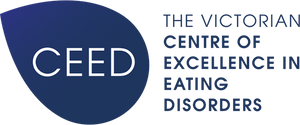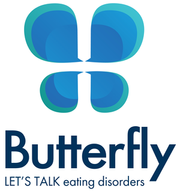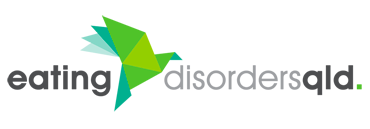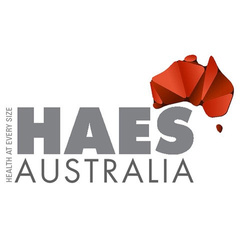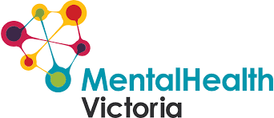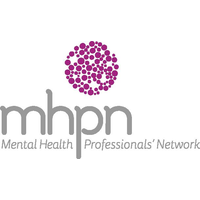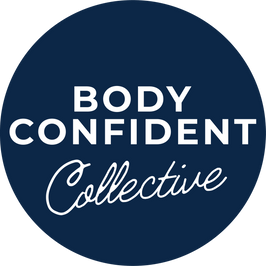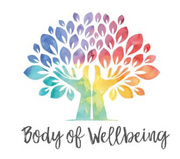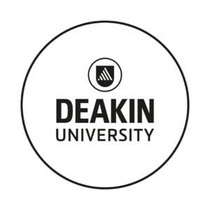Eating Disorders Victoria
Annual Report 2021 - 2022
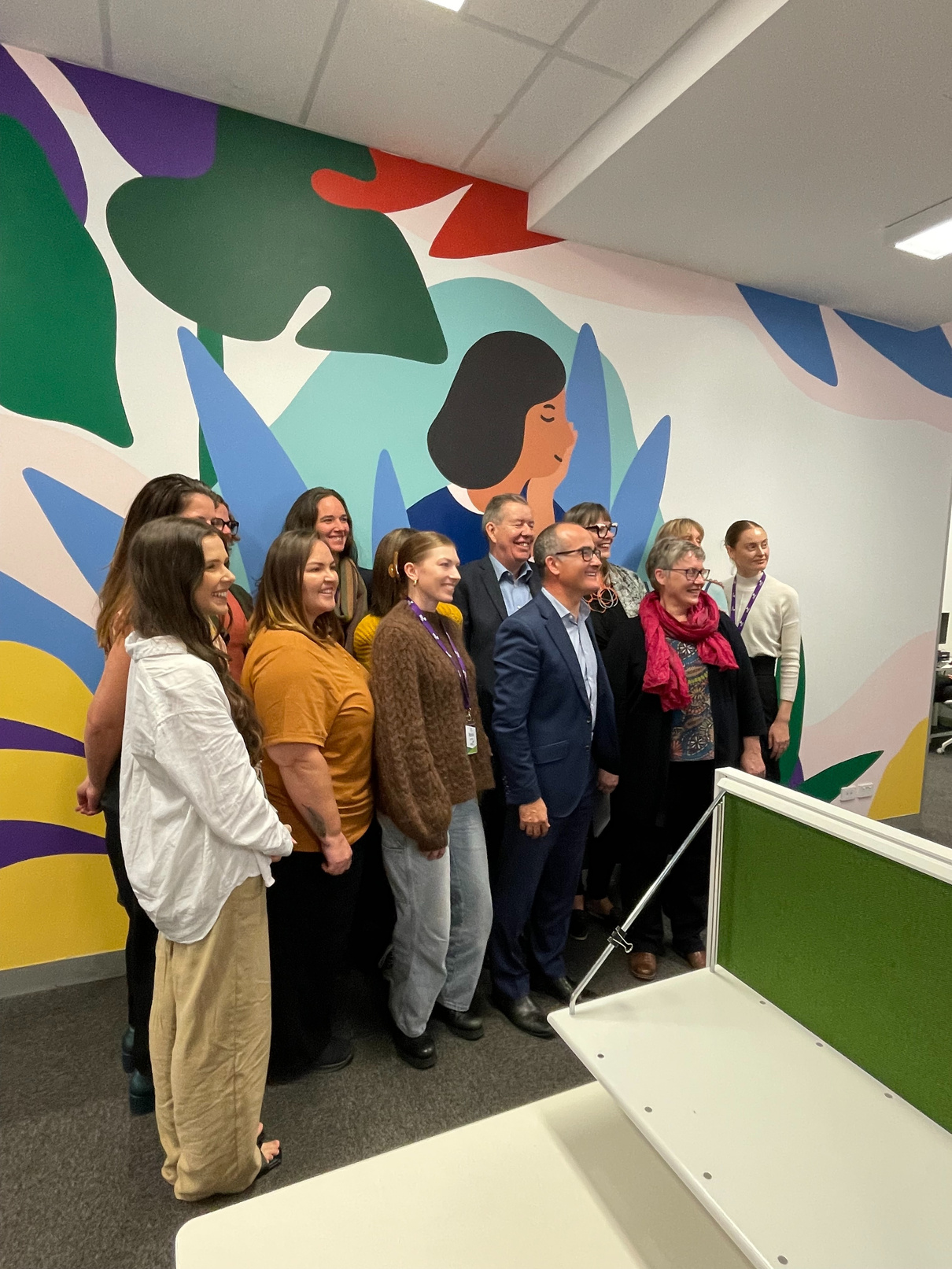

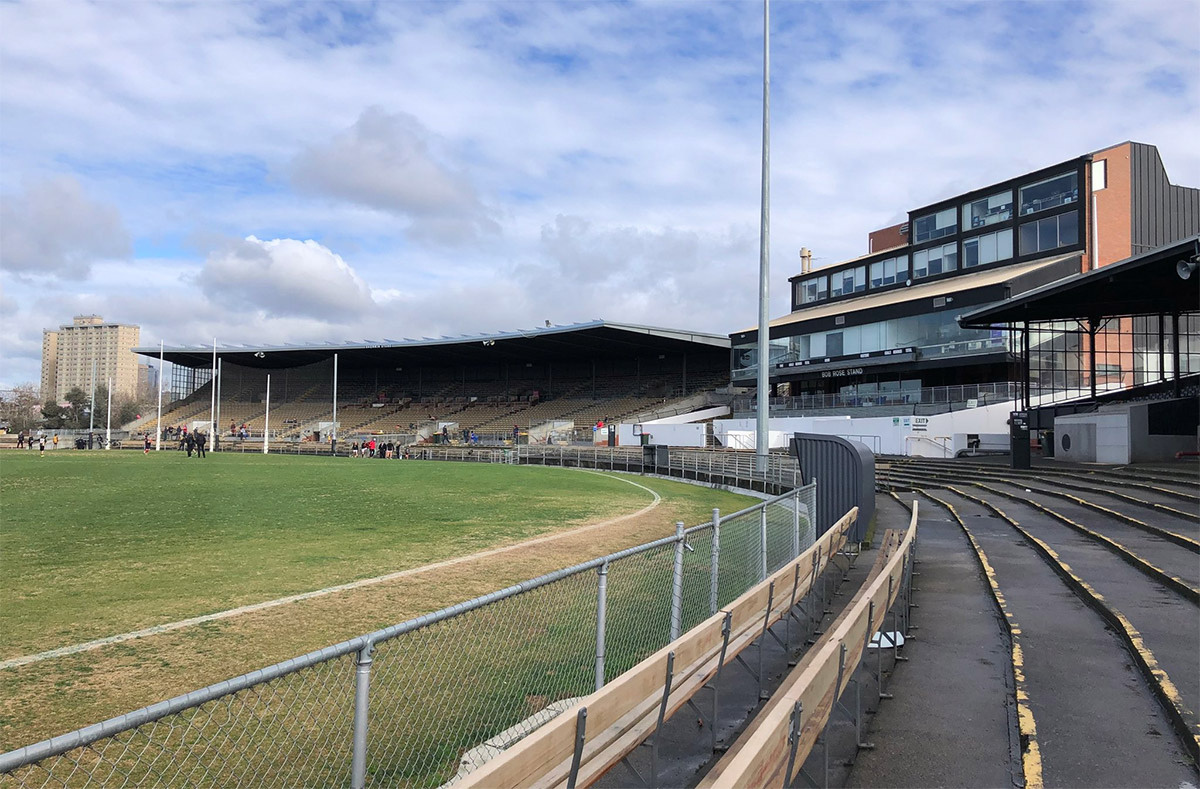
We respectfully acknowledge the traditional owners of the land on which we carry out our work, the Boon Wurrung and Woiwurrung (Wurundjeri) peoples of the Kulin Nation.
We also acknowledge the living and lived experience of those with eating disorders, their carers and loved ones. The voice of lived experience is the foundation of EDV and essential to the development of our services and advocacy.
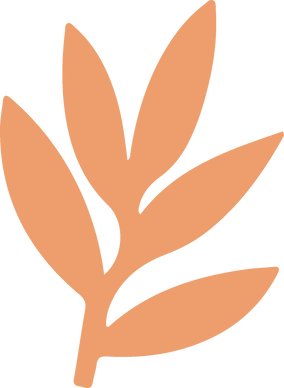

Who are we?
Eating Disorders Victoria (EDV) is the only state-wide community organisation providing trusted guidance and support services to the 334,000+ Victorians experiencing eating disorders and their carers and support people.
You can learn more about the way we work and the services we offer by visiting our website.
Get to know us

1
A message from our Board Chair and CEO
Reflections from our leaders,
EDV Chair Nick Gurner and EDV CEO Belinda Caldwell.
“EDV was able to return, albeit slightly intermittently, to normal operations and face-to-face working whilst retaining the online services which proved so needed and popular during the COVID-19 pandemic.”
“...we are extraordinarily proud that not only were we able to maintain services but we continued to innovate and reach out to more of our community with new services.”
2
How we responded in 2021-22

We guided Victorians to the people and services needed to take the next step in their journey.
If you group your elements together they'll stay together in mobile view
Find out how
The EDV Hub
The EDV Hub is a free telephone and web-based support service offering free and confidential support, information and navigation to all Victorians.
Following the formal end of Victoria's COVID-19 lockdowns, we responded to an increase in support seeking from parents and professionals concerned about adolescents aged 14-16. This follows global trends of increased eating disorder presentations in young people over the COVID-19 pandemic. There was also an increase in Victorians seeking navigational support and resources for clients or loved ones experiencing ARFID.
In 2021-22, the Hub continued to operate 5 days per week and was staffed by a full time Hub Coordinator and a team of 20 diligent volunteers.
OUR IMPACT: The Hub responded to 2,405 enquiries from Victorians in 2021-22.
WHO? The majority of people contacting the EDV Hub are those seeking help for themselves, followed by carers and support people seeking help for a loved one. Victorians contacting the Hub are most commonly seeking referrals to local psychology and dietetic services. EDV maintains a state-wide database of eating disorder clinicians specifically to support these types of enquiries.
HOW? Our online contact options remain preferred, with people reaching out for support more likely to email or use the web form, rather than make a phone call.

91% of service users would recommend the EDV Hub service to others.
Get in touch: The EDV Hub
EDV Telehealth Nurse
Established as a pilot program in 2019, the EDV Telehealth Nurse service has grown to become an essential navigation service for Victorians experiencing eating disorders. EDV Telehealth Nurses act as a central point of contact for care coordination, connecting Victorians to the right services and professionals needed for each person's unique circumstance. Contacts with clients more than doubled across the year, with a total of 1,808 contacts, up from 872 in 2020-21.
OUR IMPACT: EDV's Telehealth Nurse service supported 338 new clients, up from 236 in the previous year.
WHO? The majority of people using this service are seeking help for themselves, with 58% of service users experiencing an eating disorder. 37% were carers and 5% professionals.
HOW? Contact with Telehealth Nurses is made via phone and email. Next year, the Telehealth Nursing service looks forward to offering Zoom sessions alongside telephone and email.

"(my Nurse) has been a key support to me at one of the most difficult times. I cannot speak highly enough of the support she has offered me, her warmth and good humour. "
EDV Telehealth Counselling
EDV's Telehealth Counselling service has evolved from being a COVID-19 response to an ongoing and much valued offering to our community. This year, the team refined the service to target key audience groups:
- Early help seekers
- Relapse intervention and prevention
- Carers and support people
Support is driven by evidenced based interventions and continues to offer up to five, 30-minute sessions with a trained mental health counsellor, some of whom have personal lived experience of an eating disorder.
OUR IMPACT: EDV's Telehealth Counsellors supported 442 clients, up from 340 in the previous year.
WHO? The majority of people using this service are seeking help for themselves. In the past year, 69% were those experiencing an eating disorder, 30% were carers and 1% were health professionals.
HOW? Counsellors provide support via phone and video call.
We doubled the number of interactions with each counselling client, while only increasing staffing by 20%.
1,885 contacts were made across the financial year, up from 960 in 2020/21. This is an overall average of 4 contacts per client.
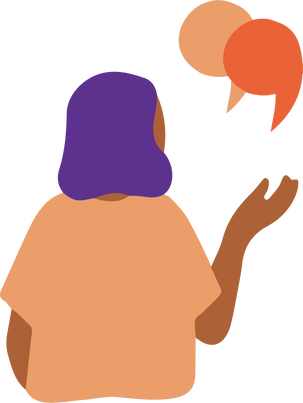
“The staff were so kind and non-judgmental. I felt like I was understood... will recommend this to anyone who has an eating disorder and it has been the best free service I have ever used in regards to counselling.”
Our lived experience workforce shared understanding, skills and hope for recovery.
Find out how
Online Support Groups
Online Support Groups continued to offer connection in a recovery-focused environment. Groups are facilitated by those with lived experience and provide a space to discuss and reflect on mutual issues.
Groups are themed to cater for different needs of the community, including Australia's first LGBTIQA+ eating disorder support group.
OUR IMPACT: EDV's Online Support Groups welcomed 536 individuals across 143 group sessions.
WHO? Participants are aged 18+ and can self-select which group to attend depending on their needs. This includes those with restrictive behaviours, those with purge and/or binge behaviours, those identifying in larger bodies, those with co-occurring mental or physical conditions and those identifying in the LGBTIQA+ community. Attendance at multiple groups is welcomed.
HOW? Groups are held online via Zoom. Times vary across the day and evening to suit differing needs of the community.
“The support groups have given me the most significant shift in my recovery.
I value them immensely both for the sense of shared experience and the new perspectives they give.”

Peer Mentoring Program (PMP)
Continual program growth and professional development were the key themes for the PMP this year. Completion of Consumer Perspective Supervision Training enabled staff to gain confidence in providing leadership and support in the peer space. The program continues to offer 1:1 support with an EDV mentor over a 6-month period. In that time, participants work with their mentors towards self-identified recovery goals.
OUR IMPACT: EDV's PMP welcomed 72 participants, an increase of 71% on the previous year. This resulted in 800 mentoring sessions taking place, a record for the program!
WHO? The PMP is open to Victorians with any eating disorder diagnosis. The majority (87.5%) of participants identify as female. 10% identified as non-binary, gender fluid or gender queer and 2% as male. 80% of participants live in metro areas and 20% live in regional or rural Victoria.
HOW? Peer Mentoring takes place in the community, outside of mentor/participant homes. Examples of mentoring activities include restaurant outings, grocery shopping, arts and crafts, cooking in the EDV kitchen, picnics and museum visits. Mentoring can also take place online if preferred.
90% of participants did not have a hospital readmission during the program.
90% of participants who completed the program reported a decrease in eating disorder symptoms.
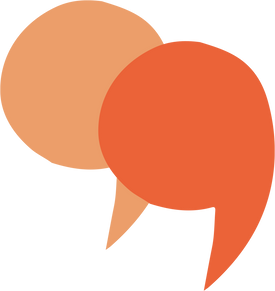
"It might sound small, but learning that recovery is possible with someone showing me, who has lived experience, makes change possible in real life. Having a mentor with a great attitude to food, culture and eating inspires changing my choices and learning to trust myself. "
Severe and Enduring Eating Disorder
(SE-ED) Program
In February 2022, EDV launched a pilot SE-ED Program in response to a gap in support services for people experiencing long term (10+ years) eating disorders. The program takes place over 12-weeks and aims to improve participant's quality of life, connection to others, self-care and hope for recovery. We believe this program to be the first of it's kind worldwide for those with long-term eating disorders.
OUR IMPACT: EDV's SE-ED Program offered two, 12-week programs between Feb-June 2022. 30 participants and their carers took part in the programs.
WHO? The average age of participants is 40 years old and the average length of illness is 24 years. 43% have, Anorexia Nervosa,
24% Bulimia Nervosa, 28% Binge Eating Disorder and 5% OSFED.
HOW? Participants engage with the program online through attending weekly education workshops and peer support groups, plus fortnightly 1:1 counselling sessions. There is also the offer of a monthly, in-person social outing.
Carers of participants attended five, online psycho-education workshops across each program.

“Isolation, shame, fear are such big hurdles for people suffering with an ED and this is the first time and place in my life where I've ever felt a bit of that weight lifted off my shoulders, felt relieved, and felt a bit of hope for my future.”
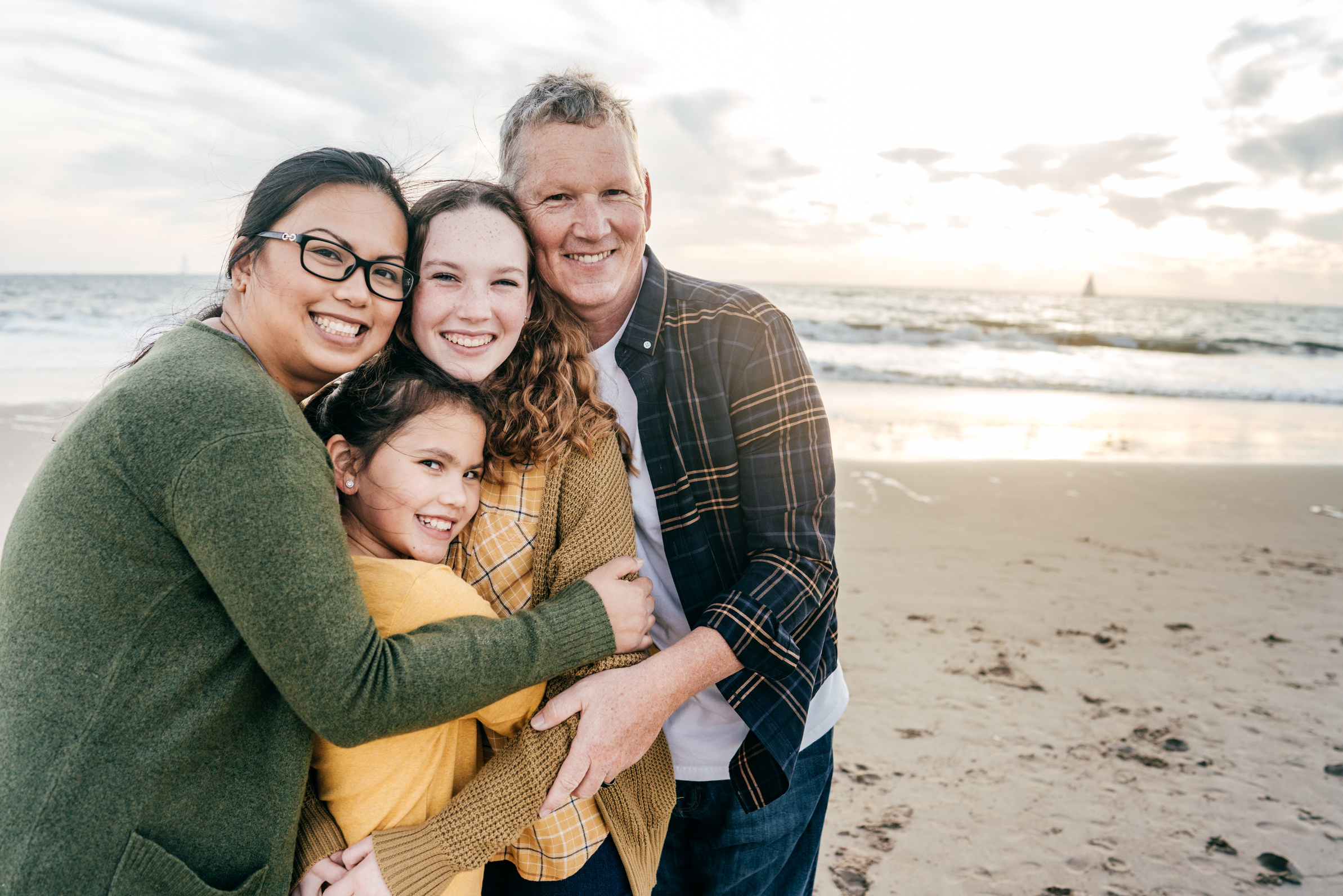
“We genuinely couldn't have got through the last few months without the Carer Coaching Program.
(Our Coach) was absolutely fantastic and struck the right chord between support and guidance, in every session. ”
Carer Support Programs
Now in it's second year, EDV's Carer Coaching Program has continued to cement its purpose of helping families activate early in the care of a young person with an eating disorder. The 8-week, 1:1 program remains available to families who are on a public waitlist to access formal FBT/Maudsley treatment.
Our Carer team also facilitated support options for families who are not eligible for the Carer Coaching Program. We started the year with the rALLY peer support group, however upon review, pivoted to offer two new Online Carer Courses: UPSKILL and RENEW. These skills-based courses offer a structured education experience in a small group setting. UPSKILL provides peer support for carers who are earlier on in help-seeking and actively renourishing a child, and RENEW is for carers who have been supporting someone for longer than two years.
OUR IMPACT: EDV's Carer Coaching Program directly supported 94 families. Online Carer Courses welcomed 156 individuals across 58 course lessons.
WHO? Carers are predominantly parents supporting a child with an eating disorder. However, at EDV we recognise that carers can be anyone, including partners, grandparents, extended family, friends and children. We welcomes all types carers to attend carer support programs.
HOW? All of EDV's Carer Support Programs are accessed online via Zoom.

100% of participants in the Carer Coaching Program strongly agreed that the program met their needs, giving them new tools, skills and information to help in the future.
"When I first started this journey to be an Ambassador, never would I have imagined how much I would also get out of doing this.
It’s such a rewarding experience and so not possible without all the work (EDV) put in, educating Ambassadors, creating opportunities and creating a safe space for us."
Ming, EDV Ambassador
Stories of Recovery
EDV Stories of Recovery Ambassadors shared their lived experience with over 500 people in 2021-22. Ambassadors were once again invited back in-person to speak with Victorians being supported in inpatient or day patient programs. Attending these sessions continues to be a tremendous privilege for our team.
Ambassadors also shared their lived experience through expanded mediums, including the EDV podcast and co-design opportunities in the public and private health system. Co-design is a reflection of the ongoing commitment to build mental health services that reflect the needs of consumers and carers, and EDV is proud to support these important sessions.

"After hearing from an EDV Ambassador, a patient commented that they had changed their mind about discharging themselves from the program, and that they were willing to continue treatment. "
Our education resources strengthened
self-help skills and improved community awareness.
Find out how
Community Education & Online Learning
Learning engagements through EDV's Education team continue to take place entirely online, cementing the transition that took place during the COVID-19 pandemic. Early intervention training workshops were held for mental health workers, school wellbeing teams, yoga teachers, fitness professionals, youth workers and midwifery students.
EDV's online learning platform for consumers, carers and professionals, LearnED, launched 7 new courses in 2021-22. We also received a funding boost from the Telematics Trust to continue to develop online learning courses that meet the needs of the community. This grant will support development of new content for the LearnED platform until June 2023.
The evidence-based carer course, Collaborative Care Skills Workshop, received funding from Goldman Sachs Gives. This funding will support the regular running of this evidence-based course for carers between 2022 - 2024.
OUR IMPACT: 1183 people participated in an EDV Education session in the past year and 590 people engaged with our LearnED platform.
HOW? Participants engage with educations programs online. Live trainings are held through Zoom and self-paced online learning through the LearnED platform is hosted by Thinkific.
Our webinar with HAES Australia, Health At Every Size: The Bigger Picture, attracted 532 professionals, providing a deep dive into the application of Health at Every Size principles in professional practice.

Recovery and Carer Newsletters
Recovery is ongoing journey that requires continual learning and discovery. To support this, EDV sends two educational email newsletters each month: Sending Hope, a newsletter for those in recovery, and our Carers Newsletter.
Content for the newsletters is written by EDV's team of Counsellors, Nurses and Carer Coaches, many of whom also have personal lived experience of an eating disorder. Each newsletter draws on a single topic of interest, providing readers with practical information to support recovery in themselves or a loved one.
This year we welcomed more than 2700 subscribers to our recovery and carer newsletters.
EDV Newsletters
EDV Podcast
EDV's Podcast, Candid Conversations, continues to provide a space for the lived experience and professional expertise at EDV to be shared with a broader audience.
This year we released 6 new podcast episodes. The podcast has now amassed over 10,000 unique episode listens. Episodes balance lived experience story telling with practical tips to support recovery.
"This is exactly what people want to hear to gain hope for recovery for themselves or for a loved one. "
We enhanced the system of care through our commitment to workforce capability, research and collaboration.
Find out how
ANZAED Credential
This year, EDV embraced the new national eating disorder clinician credential program through the Australian and New Zealand Academy for Eating Disorders (ANZAED) and the National Eating Disorders Collaboration (NEDC).
Eligible EDV staff undertook the required training process to receive the credential, which formally recognises mental health professionals and dietitians who possess the qualifications, knowledge, training, and professional development profile to meet minimum standards for delivery of safe and effective eating disorder treatment.
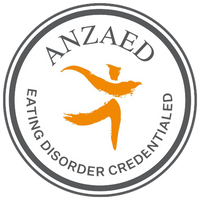

EDV Clinic
Over the past year, the EDV clinic has expanded the range of services to include psychiatry, psychology and dietetic support, with all clinicians reaching the ANZAED credential status.
The mental health clinic offered 1118 appointments, up from 864 appointments in 20/21. The dietetics clinic offered 201 appointments. Appointments are available via a combination of telehealth and in-person at our office in Abbotsford.

The EDV clinic continues to operate as a social enterprise, providing an opportunity for Victorians to access private eating disorder treatment, while generating profit to support EDV's free community services.
Research & Translation
This year, EDV became a partner organisation of the Mainstream Hub, a multi-site, multi-disciplinary research and translation team lead by the InsideOut Institute that aims to improve understanding and outcomes for people with eating disorders, their carers and supports. As part of its work, Mainstream has developed translation hubs in NSW, VIC and QLD, with a primary focus around implementing translation focused testing of scalable models of care into mainstream health service and policy.
The Victorian translation hub has undertaken a range of activities across 2022 to support partner organisations. At EDV, this has included an evaluation of the Peer Mentoring Program, after promising but early pilot results in 2019.
This work is important to evolve our understanding of the lived experience workforce as an adjunct in eating disorder management, and is expected to be completed in early 2023.
With thanks to
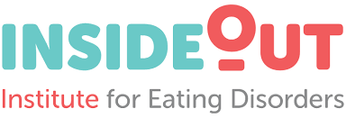
3
Our Community

Raising the voice of lived experience
As the leading consumer and carer organisation representing Victorians impacted by eating disorders, EDV actively engages in opportunities to improve health system responses to eating disorders. Highlights this year included participating in:
- Orygen's service redesign project, supporting the development of best practice eating disorder pathways for young people in the North West region.
- Victorian Eating Disorders Residential Treatment Service Working Group, supporting the design of the facility and informing the model and care.
- Ministerial Roundtable hosted by the then Minister for Mental Health, the Hon James Merlino MP, leading to a commitment to develop a new statewide strategy for eating disorders in Victoria.

EDV's CEO Belinda Caldwell presented at:
- Mental Health Victoria symposium on peer-led models of care
- Mental Health Victoria symposium on "Learning from Adversity"
- National Research and Translation Top 10 Research Priorities as a panel member
EDV is an active member of:
- Eating Disorders Alliance Australia
- Mental Health Victoria Service Reform Advisory Network Group
- Women’s Mental Health Alliance Group
EDV continued to participate in the reform process through the Royal Commission into Victoria's Mental Health System. This includes:
- Attending workshops for planning the Collaborative Centre for Mental Health and Wellbeing and the Carer Led Centres,
- Submission to review of the Mental Health and Wellbeing Act
Fundraising and community engagement
This year, EDV received over $57,000 in community donations, an increase of 19% from the previous year. We'd like to thank all our supporters who heeded our call for donations, particularly in response to our 2022 Tax Appeal, where we shared the challenges of operating in an uncertain funding environment.
We continue to be privileged to connect with so many people through our online channels, particularly our social media. Thank you to all those who liked, commented, shared and engaged with us online. In particular, we'd like to thank those who shared their lived experience as part of Body Image and Eating Disorders Awareness Week 2021. The advocacy of our community is essential in breaking down stigma and encouraging help seeking.
We also engaged in a variety of media opportunities, helping the broader community to understand eating disorders and take action. Highlights include:
- EDV's Operations Manager Rachel Ingram article "Dear fitness professionals" on mamamia.com for Body Image and Eating Disorders Awareness Week
- EDV's Telehealth Services Manager Amy Woods article for Sunday Life on body neutrality
- EDV spokesperson Olivia Donati-Beech interviewed on the Australian Birth Stories podcast regarding her lived experience of eating disorders and pregnancy
- EDV's CEO Belinda Caldwell co-hosting podcast series 'Eating Disorders: Beyond the Unknown' for the Mental Health Professionals Network
15,000+
social media followers
Celebrating our Volunteers
2022
Tax Appeal
Events
Calendar
Body Image & Eating Disorders Awareness Week
External Podcasts

4
Financial Reports 2021 - 22

A message from our Board Treasurer
EDV Treasurer Jeff Cole outlines EDV's financial position
FY 21/22 in review
I am pleased to present the audited financial statements of the Eating Disorders Foundation of Victoria Inc for the year ended 30 June 2022.
On the back of another challenging year EDV has delivered a net surplus of $36,754 (down from $197,872 in 2021) and has increased Members Funds to $565,812.
Income & Expenditure Statement
Total income for the year increased to $2,597,003 representing a 29% increase on the prior year.
The main changes in revenue against the previous year were:
- Government grants increased by $716,617 to $2,263,963, representing 46% of total revenue similar to the prior year
- Philanthropic Grants decreased by $46,780 to $15,978, which is down 75%.
- Income from fundraising activities increased by 19% to $57,363.
- Fee income reduced by 26% to $234,090, compared to $318,657 in FY2021, reflecting some of the challenges of operating in the COVID environment.
- Total operating expenditure rose 41% to $2,531,320, due mainly to the employee expenses associated with delivering on the commitments of new and expanded programs.
Balance Sheet
Net cash flows from the operating surpluses over the past five years have created a strong cash position for the organisation. With expenses rising higher than revenue our closing cash position has reduced since the previous year from $1,400,639 down to $932,259. The corresponding liability for prepaid income has also reduced from $797,751 in June 2021 to $275,836 in June 2022, which reflects the change in the future funding mix and how it is paid.
2023-24 Budget
The management team is forecasting another surplus for the 2022/21 year on the basis of government grant funding secured at current levels, and the continuation of programs and services.
I would like to thank Belinda Caldwell and her passionate staff, the indispensable Megan Crellin (Finance Manager) and the Finance Audit Risk and Governance Committee for their diligence in monitoring the financial affairs of the EDV. The COVID operating environment continued to create a number of challenges for the year end audit process and the management of this process is a credit to all involved.
Jeff Cole
Treasurer
Financial statments
Statement of Profit or Loss and Other Comprehensive Income for the Year Ended 30th June 2022
2022 $ | 2021 $ | |
Revenue | 2,597,003 | 2,016,179 |
Employee benefits expenses | 2,020,684 | 1,334,814 |
Depreciation expense | 40,529 | 35,546 |
Consultancy expenses | 246,900 | 212,458 |
Occupancy expenses | 37,647 | 41,635 |
Computer expenses | 46,171 | 32,198 |
Communications expenses | 17,216 | 17,101 |
Advertising and promotion expenses | 16 | 9,563 |
Postage, printing & stationary expenses | 3,339 | 3,805 |
Other expenses | 118,728 | 109,909 |
Net Surplus | 65,683 | 219,177 |
Long service leave related expenses | 28,929 | 21,305 |
Net Current Year Surplus | 36,754 | 197,872 |
Other Comprehensive Income | - | - |
Total Comprehensive Income for the Year | 36,754 | 197,872 |
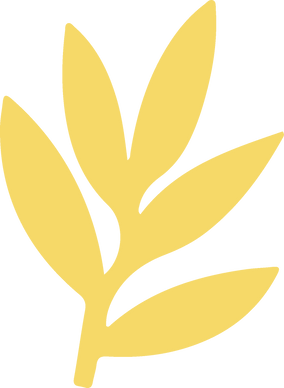
The information on this page is extracted from EDV's Audited Financial Report. A full copy of the Audited Financial Report is available upon request.
Statement of Financial Position as at June 30th 2022
2022 $ | 2021 $ | |
ASSETS | ||
Current Assets | ||
Cash and cash equivalents | 932,259 | 1,400,639 |
Accounts receivables and other debtors | 35,450 | 26,904 |
TOTAL CURRENT ASSETS | 967,709 | 1,427,543 |
Non Current Assets | ||
Furniture and equipment | 107,551 | 119,465 |
TOTAL NON CURRENT ASSETS | 107,551 | 119,465 |
TOTAL ASSETS | 1,075,260 | 1,547,008 |
LIABILITIES | ||
Current Liabilities | ||
Accounts payable and other payables | 530 | - |
Other creditors | 118,651 | 69,343 |
Provisions | 107,621 | 69,343 |
Contract liability | 275,836 | 797,751 |
TOTAL CURRENT LIABILITIES | 502,638 | 1,013,350 |
Non Current Liabilities | ||
Provisons | 6,810 | 4,600 |
TOTAL NON CURRENT LIABILITIES | 6,810 | 4,600 |
TOTAL LIABILITIES | 509,448 | 1,017,950 |
NET ASSETS | 565,812 | 529,058 |
EQUITY | ||
Retained Surplus | 565,812 | 529,058 |
TOTAL EQUITY | 565,812 | 529,058 |
5
Our Supporters

Thank you to our trusted funding partners and supporters.
The Victorian Government was the primary funding partner of EDV in 2021 - 2022. We thank the Victorian Government for their ongoing support.
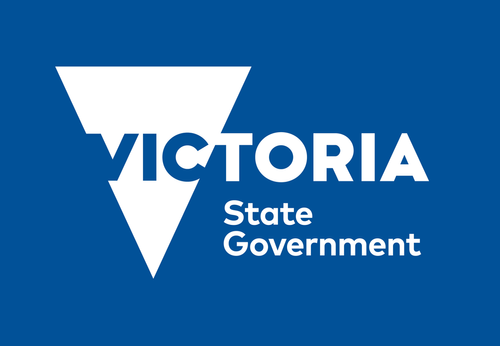
Thank you to the following trusts and foundations for their philanthropic support in 2021 - 2022:
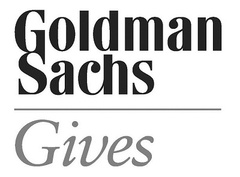
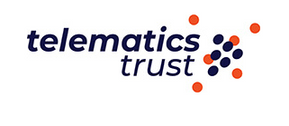

Thank you to our colleagues, collaborators and partners:
